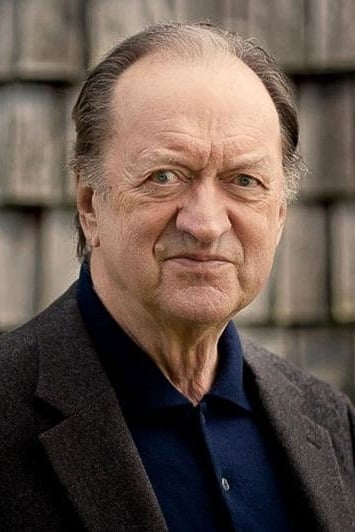
Over twenty-five years after his death in July 1989, the controversial Austrian conductor Herbert von Karajan remains an enigma. He was the most successful conductor in the history of classical music. Many of his recordings - of Italian opera, of Wagner and Richard Strauss, of Sibelius, Beethoven and Brahms - are treasured by music lovers around the world. Yet, even at the peak of his fame, his performances were variously criticised for being too opulent, too manicured, lacking warmth or spiritual depth. This musical profile explores the many paradoxes in the life and music of this controversial figure, who forged his international reputation in London with the Philharmonia Orchestra shortly after the end of the Second World War and went on to reign supreme in the classical music world during his three decades with the Berlin Philharmonic. The film also examines Karajan's belief in the visual power of music, and his determination to leave behind a substantial legacy of music on film.
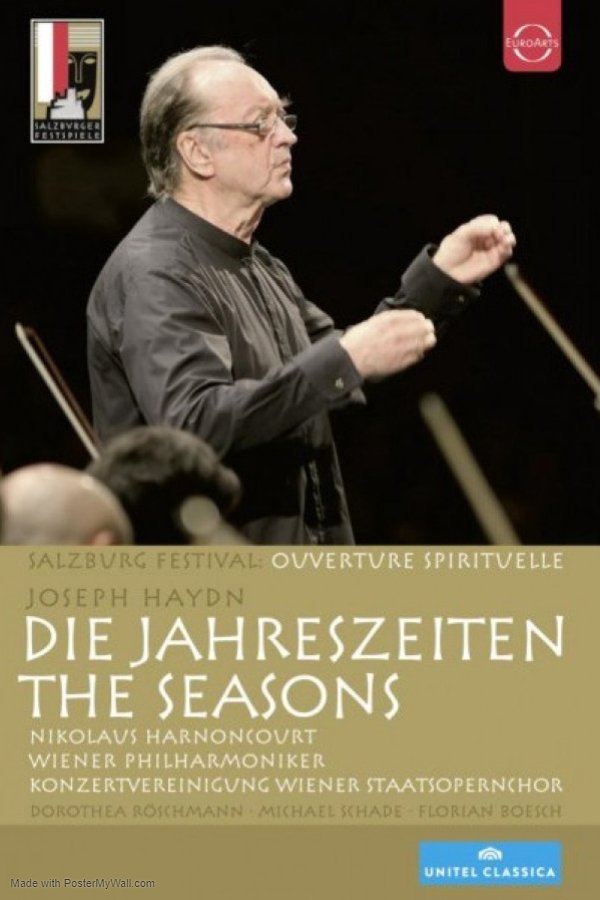
When Joseph Haydn completed his fourth and final oratorio at the beginning of 1801 the 69-year-old composer was famous throughout Europe. Born in 1732 as the son of a humble wheelwright, Haydn grew up in a rural, peasant environment. That such a child should make his way eventually to the position of court composer was an extremely rare occurrence. Even in his days at royal courts, however, Haydn still felt a close and intimate attachment to Nature and to life in the countryside. When Baron Gottfried van Swieten, then, presented to Hadyn a libretto on the theme of The Seasons, he found in the old composer a worthy partner in his own veneration for Nature.
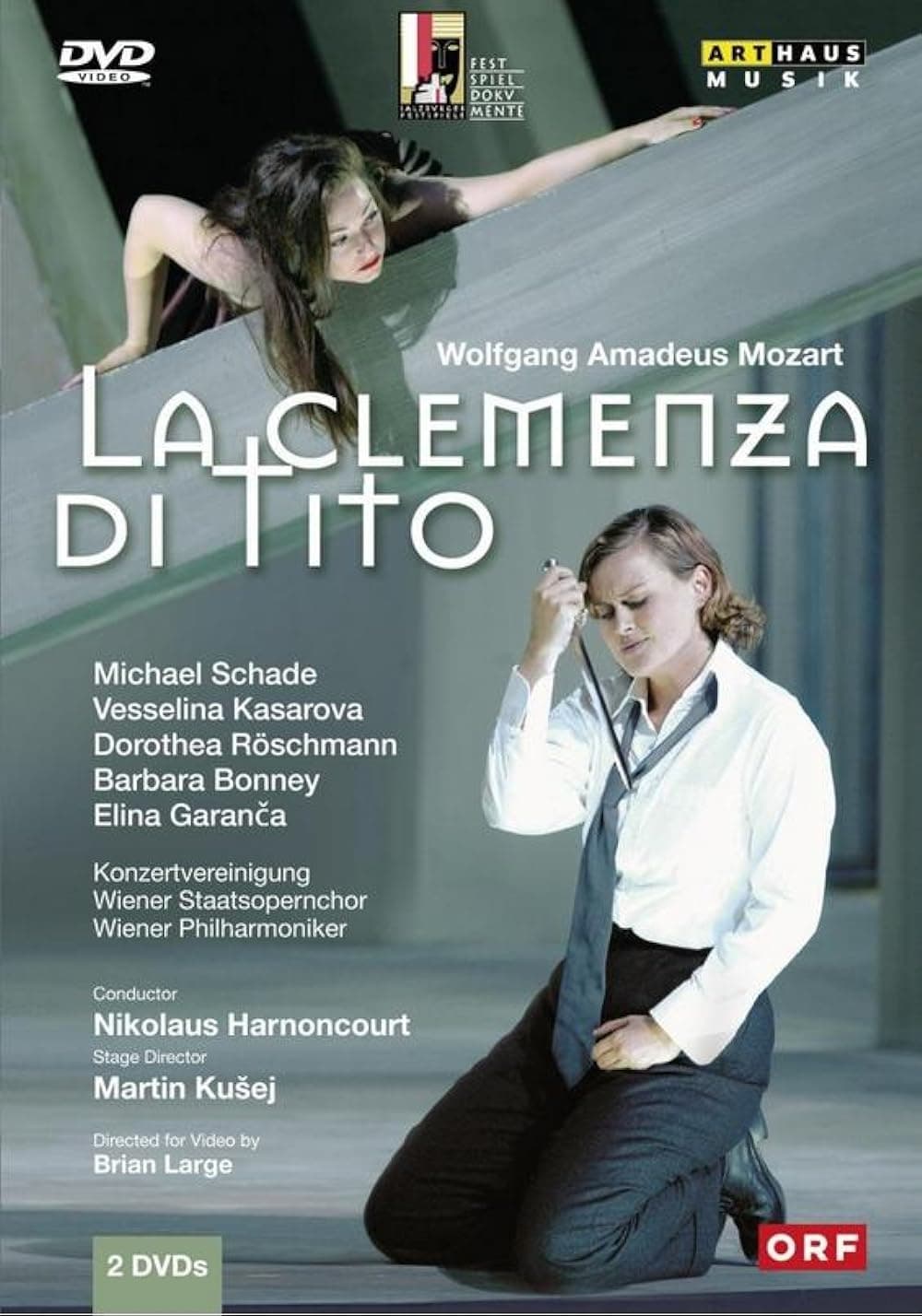
The 1791 La Clemenza di Tito (or 'The Clemency of Titus') marked Wolfgang Amadeus Mozart's final opera seria. With a libretto by Metastasio (edited slightly by Caterino Mazzolà), the work dramatizes the palace intrigues surrounding emperor Titus's attempts to coronate a new bride and the envious Vitellia's attempts to have Titus assassinated (with the help of Titus's friend Sextus) following the deposition of Vitellia's emperor father. Stage director Martin Kušej mounted Tito in August 2003, at the Felsenreitschule in Salzburg; a film of that live performance now appears in this home video release. The cast includes Michael Schade as Titus, Vesselina Kasarova as Sextus and Dorothea Roschmann as Vitellia. The Wiener Staatsopernchor, under the baton of Nikolaus Harnoncourt, provides musical accompaniment; Jens Kilian designed the sets.
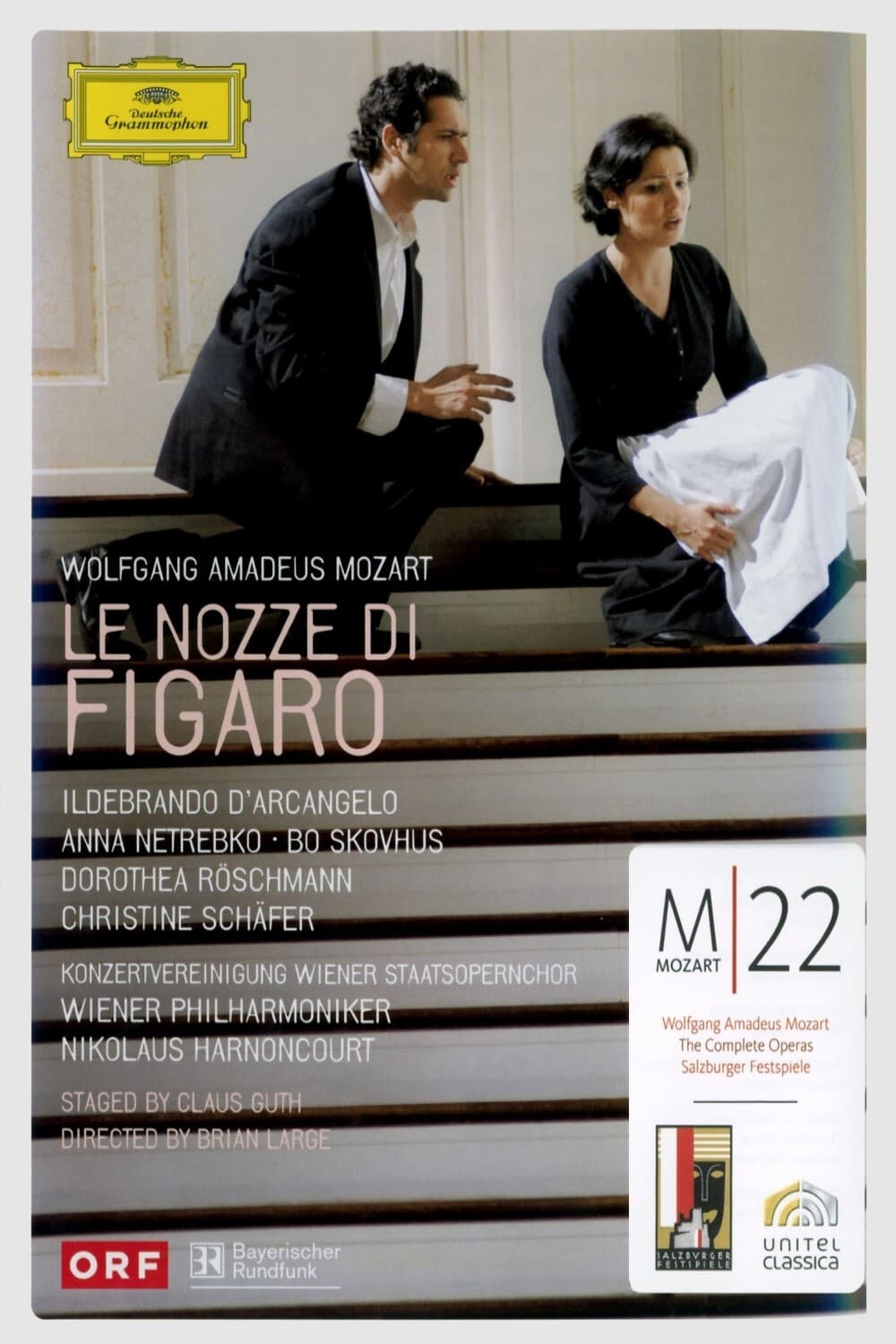
This release contains the celebrated 2006 production of Mozart's Nozze di Figaro that was directed for the stage by Claus Guth at that year's Salzburg Festival. Ildebrando D'Arcangelo takes the title role, and gets support from Anna Netrebko as Sussanna, Bo Skovhus as Il Conte Di Almaviva, and Dorothea Roschmann as La Contessa. Nikolaus Harnoncourt conducts the orchestra.

Nikolaus Harnoncourt directs the Concentus Musicus Wien and Toelzer Knabenchor in Bach's masterwork. Featured soloists are Peter Schreier and Robert Holl. The performance was filmed in 1982 at the Stiftskirche in Waldhause, Austria.
Nikolaus Harnoncourt leads the Concentus Musicus Vienna and Arnold Schoenberg Choir in a concert of Bach music at Austria's Kloster Melk Benedictine Monastery. Works included in this celebration of the coming of Christmas are Cantata BWV 61, "Nun Komm, der Heiden Heiland"; Cantata BWV 147, "Herz und Mund"; and Magnificat in D Major BWV 243. Soloists are Christine Schafer, Anna Korondi, Bernarda Fink, Ian Bostridge, Christopher Maltman. With the Concentus Musicus Vienna and the Arnold Schoenberg Choir.
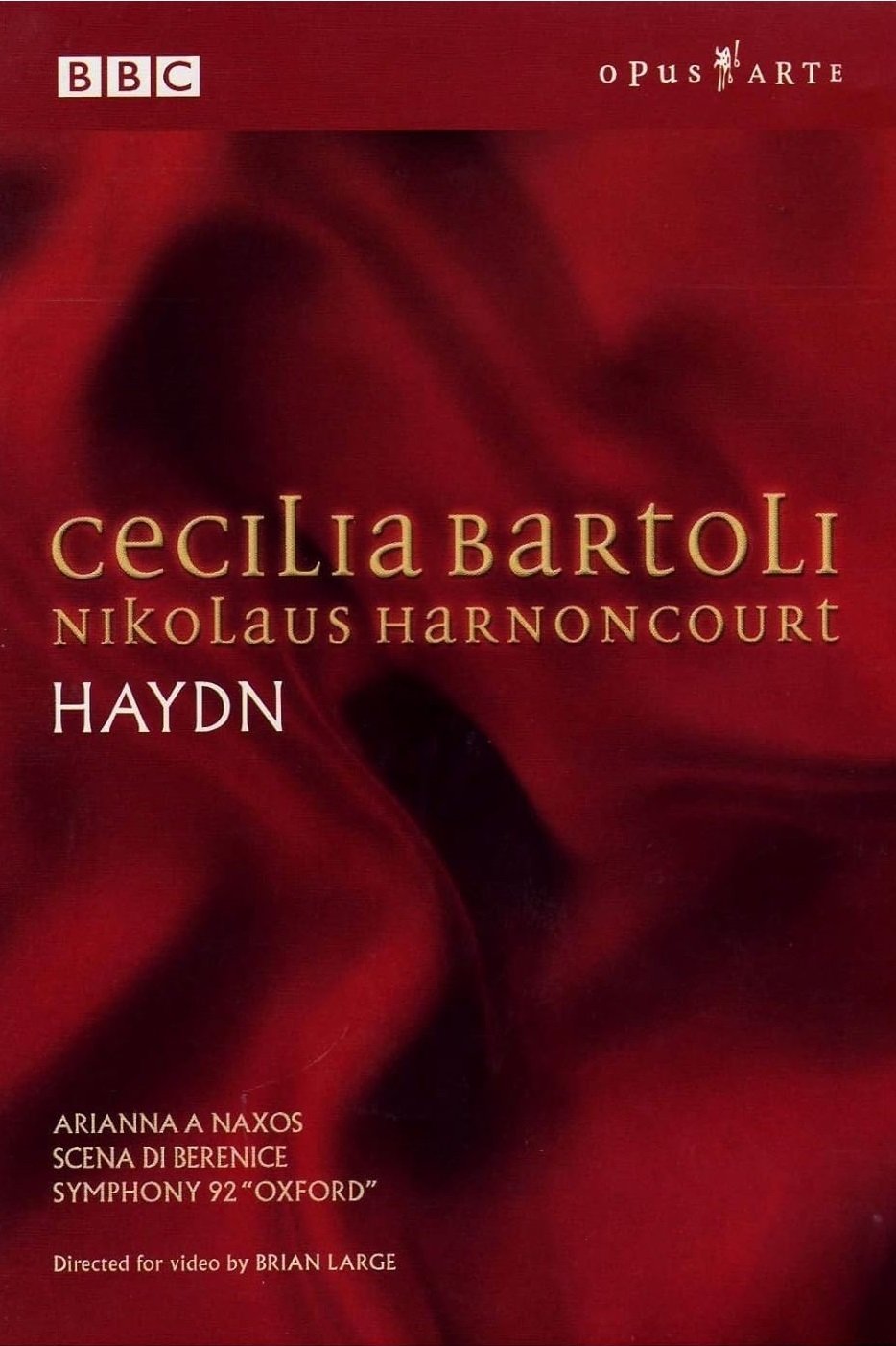
From the Styriarte Festival in Graz Austria, the acclaimed mezzo-soprano Cecilia Bartoli and Maestro Nikolaus Harnoncourt with his orchestra Concentus Musicu Wien, present a concert on Haydn arias and Symphony No.92, the "Oxford". The singing virtuosity of "Scena di Berenice" is sublime as is the performance of The "Oxford" Symphony from the ensemble renown for its specialty in early music and playing on period instruments. A unique concert.
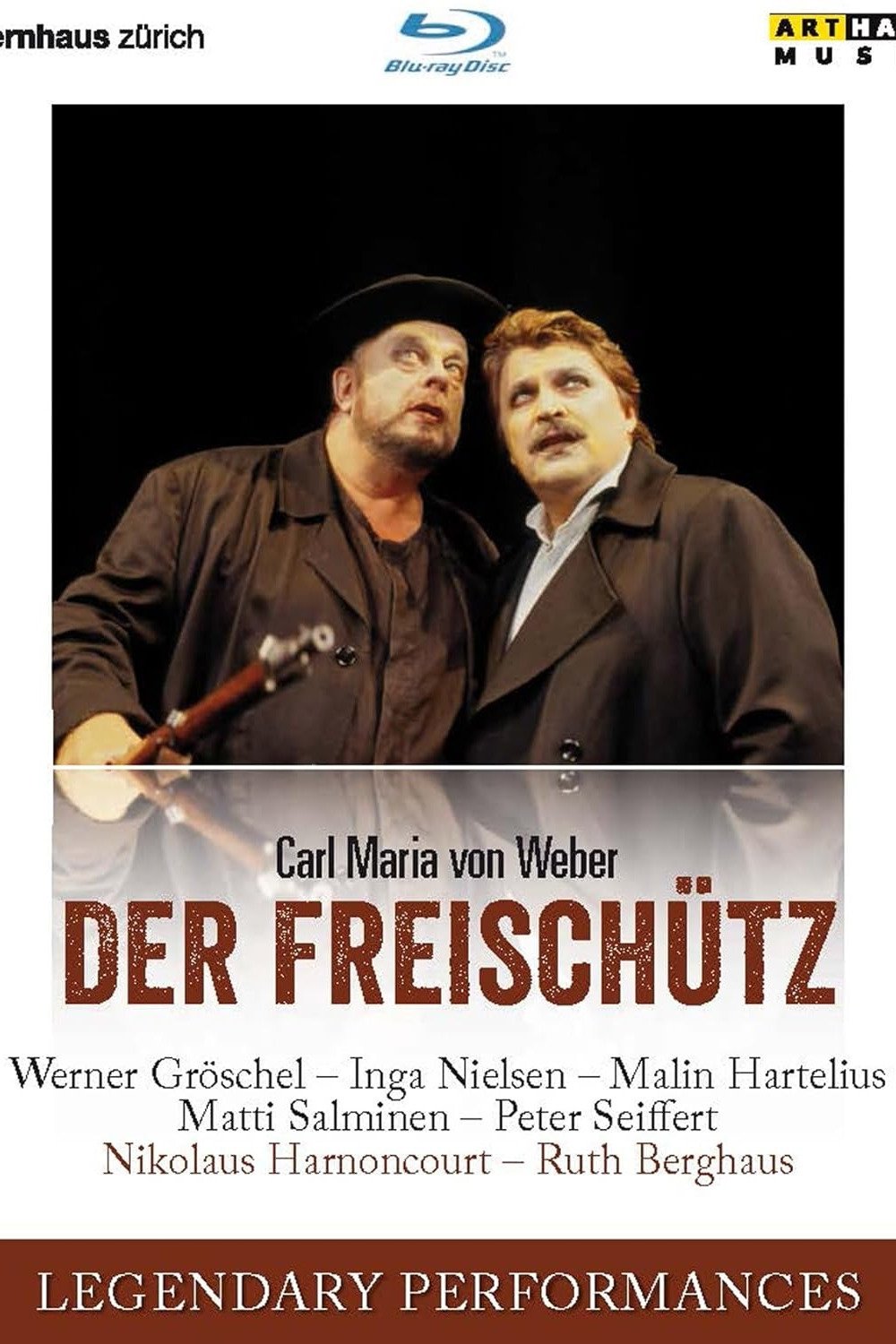
The legendary director Ruth Berghaus created this staging of Carl Maria von Weber’s Der Freischütz as a gripping theatrical experience for the Zurich Opera in 1993. Its revival in 1999 was a roaring success. With sets by Hartmut Meyer and costumes by Marie-Louise Strandt, Berghaus’ staging avoids the local peasant colour conventionally associated with Weber’s opera. Chorus and orchestra of the Zurich Opera House are conducted by Nikolaus Harnoncourt, universally celebrated for the structural transparency of his interpretations, his intellectual penetration and his emotional understanding of both music and opera plot. And last but not least an all-star cast made this production a highly memorable event: the dramatic soprano Inga Nielsen as Agathe, one of her best roles, the Swedish soprano Malin Hartelius as Ännchen, the sought-after Heldentenor Peter Seiffert, who gives a convincing passionate Max, and many others.
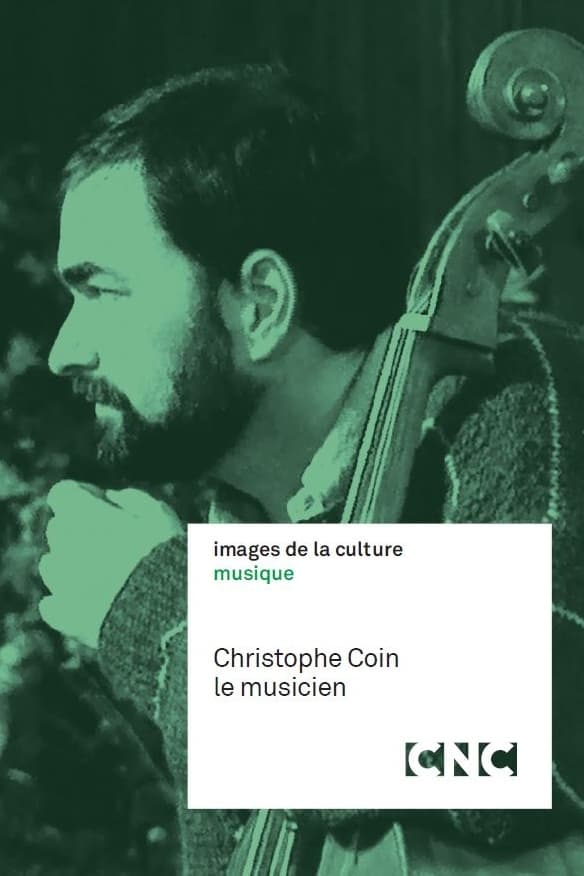
By browsing this website, you accept our cookies policy.